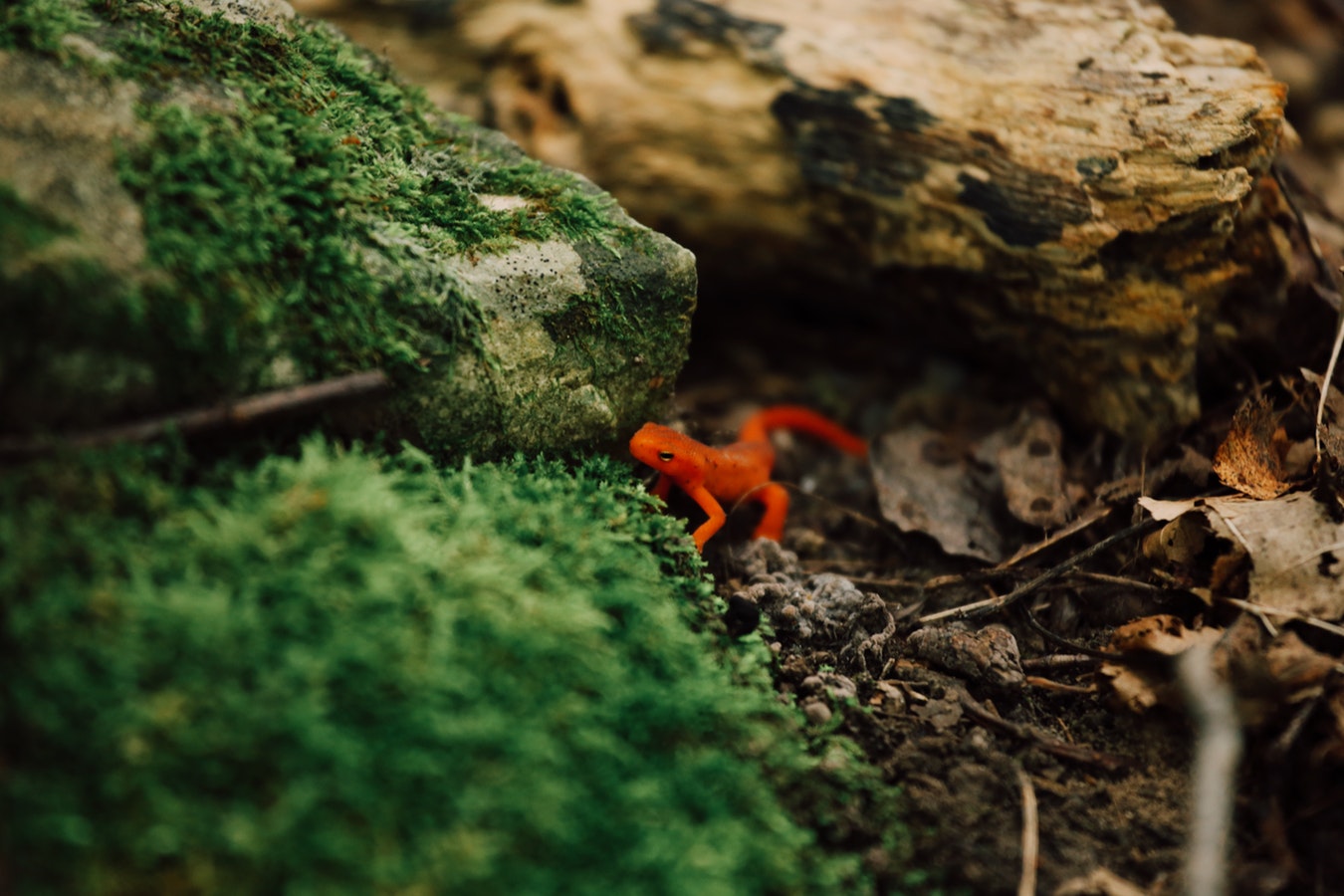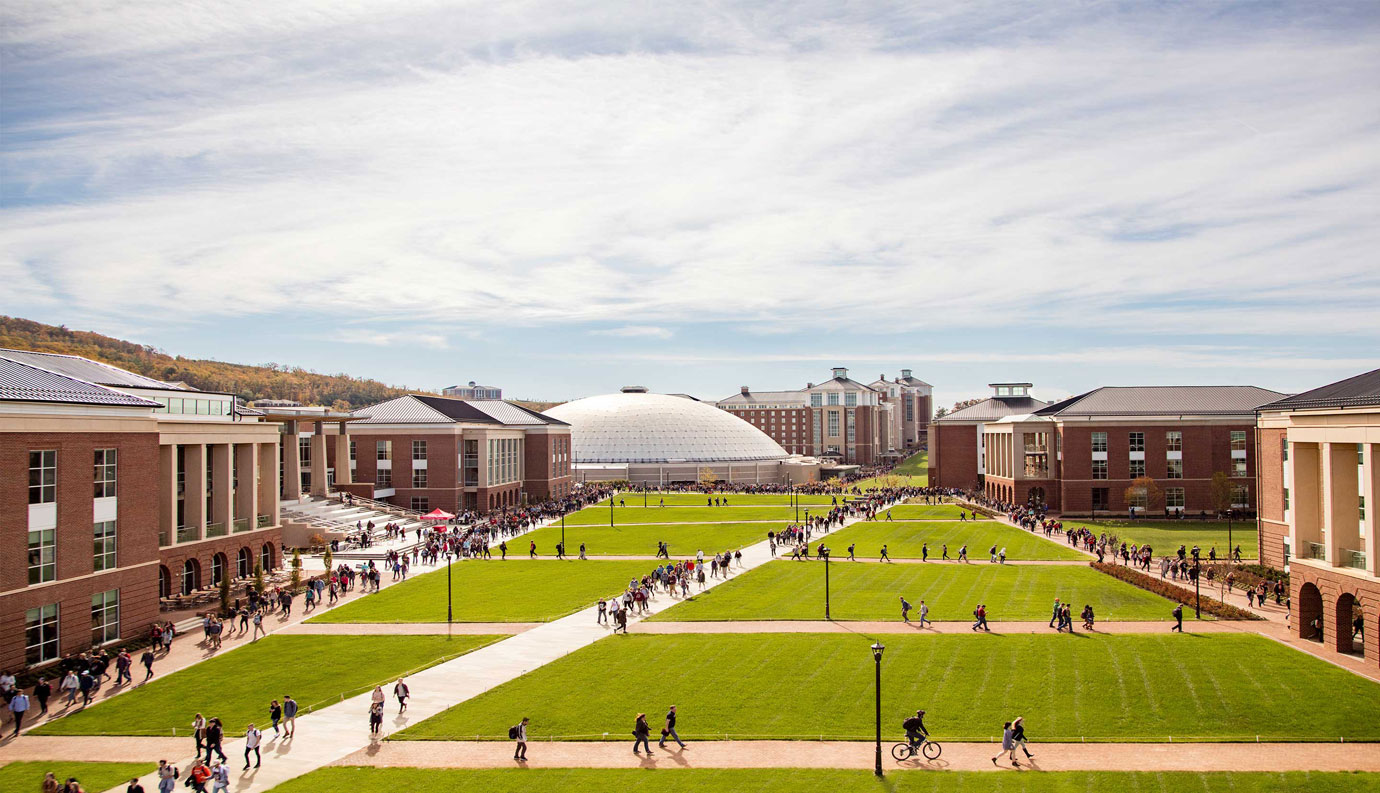Bachelor of Science in Zoo and Wildlife Biology
Pursue Your Passions and Career Aspirations by Earning a Bachelor’s Degree in Zoo and Wildlife Biology
A degree in zoo and wildlife biology provides the training and knowledge you need to pursue your lifelong goal of helping animals survive and thrive. A typical day in the life of someone working with wildlife includes studying origins, diseases, life processes, genetics, and behaviors.
With a degree in zoo and wildlife biology, you can pursue fulfilling careers in zoos, conservation organizations, national parks, and more. Additionally, you can confidently pursue graduate work in natural resources and wildlife management.
It is crucial that you get all the hands-on training you can during your time on campus. In addition to the state-of-the-art facilities and laboratories you will use, you also have the option of participating in an internship to give you additional experience prior to graduation, which we highly recommend.
One of our recent graduates, Zach Millender, has fulfilled his lifelong dream of working at SeaWorld.
Pursue Your Degree with Confidence
- Liberty University is accredited by SACSCOC, the Southern Association of Colleges and Schools Commission on Colleges.
- There are many opportunities to be involved in research projects with faculty as an undergraduate student.
- Labs are associated with nearly every course in the Department of Biology and Chemistry, giving you hands-on experience in your field before graduation.
- An optional internship gives you the opportunity for additional hands-on experience.
What Will You Learn?
- Freshman and sophomore science classes provide a strong foundation in biology, chemistry, mathematics, and physics.
- Almost all of our biology and chemistry courses have associated labs where you can put into practice the topics you are learning in the classroom.
- You will study microbiology, parasitology, ecology, botany, animal behavior, natural history, and the history of life.
- Throughout this degree, you will learn animal husbandry and gain wildlife research skills as you study the biology and behavior of vertebrates.
- Emphasis is placed on creationism, but evolution is discussed for a well-rounded perspective of the earth’s origins.
- Zoo and wildlife biology majors help professors conduct research, write scientific papers, and observe animals in their natural habitat.
Career Opportunities for Graduates of Our Zoo and Wildlife Biology Bachelor’s Degree
- Animal Care Specialist
- Conservation Officer
- Park Naturalist
- Wildlife Biologist
- Zoo Curator
- Zoo Keeper
Develop Your Skills in Our State-of-the-Art Research Labs
- Conduct research in one of the Center for Natural Sciences’ state-of-the-art research labs.
- Teaching spaces in the Center for Natural Sciences include 20 major-specific teaching labs and 6 research labs.
- Professional-level research equipment includes a gene sequencer, tissue culture facility, fluorescent microscope, LICOR imager, and more.
Admission Requirements for Our Undergraduate Degree Programs
Every application is reviewed by the admission committee on a case-by-case basis, meaning there are no set minimums for acceptance. However, all applicants must submit the following documents* for admission:
- Admission application
- Official high school transcripts
- Official college transcripts (if applicable)
- Results from the CLT, SAT, or ACT are not required for admission, but may be used in consideration for merit-based aid.
- Admission essay
*Note that additional documentation may be requested by the admission committee after your application has been received.
Bachelor of Science in Zoo and Wildlife Biology
Pursue Your Degree with Confidence
- Liberty University is accredited by SACSCOC, the Southern Association of Colleges and Schools Commission on Colleges.
- There are many opportunities to be involved in research projects with faculty as an undergraduate student.
- Labs are associated with nearly every course in the Department of Biology and Chemistry, giving you hands-on experience in your field before graduation.
- An optional internship gives you the opportunity for additional hands-on experience.
What Will You Learn?
- Freshman and sophomore science classes provide a strong foundation in biology, chemistry, mathematics, and physics.
- Almost all of our biology and chemistry courses have associated labs where you can put into practice the topics you are learning in the classroom.
- You will study microbiology, parasitology, ecology, botany, animal behavior, natural history, and the history of life.
- Throughout this degree, you will learn animal husbandry and gain wildlife research skills as you study the biology and behavior of vertebrates.
- Emphasis is placed on creationism, but evolution is discussed for a well-rounded perspective of the earth’s origins.
- Zoo and wildlife biology majors help professors conduct research, write scientific papers, and observe animals in their natural habitat.
Career Opportunities for Graduates of Our Zoo and Wildlife Biology Bachelor’s Degree
- Animal Care Specialist
- Conservation Officer
- Park Naturalist
- Wildlife Biologist
- Zoo Curator
- Zoo Keeper
Develop Your Skills in Our State-of-the-Art Research Labs
- Conduct research in one of the Center for Natural Sciences’ state-of-the-art research labs.
- Teaching spaces in the Center for Natural Sciences include 20 major-specific teaching labs and 6 research labs.
- Professional-level research equipment includes a gene sequencer, tissue culture facility, fluorescent microscope, LICOR imager, and more.
Admission Requirements for Our Undergraduate Degree Programs
Every application is reviewed by the admission committee on a case-by-case basis, meaning there are no set minimums for acceptance. However, all applicants must submit the following documents* for admission:
- Admission application
- Official high school transcripts
- Official college transcripts (if applicable)
- SAT, ACT, or CLT scores (Liberty University is offering test-optional admission through Fall 2022 acceptance)
- Admission essay
*Note that additional documentation may be requested by the admission committee after your application has been received.
Credit Hours

Available On Campus
Class Type
Residential
Transfer Credits
Transfer in up to 75% of the degree total
Next Start Date
Aug 18, 2025
Accreditation
Liberty University is accredited by SACSCOC





